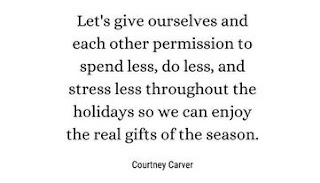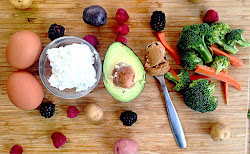Blog 4: Part I: Nutrition for Mental Health
Hello Hello!!! Catching up here for our August blog!
To recap, we have learned how self care relates to our anxiety, hormones, cortisol, adrenals, and stress. In addition, we have learned about next steps in taking a pause to ask ourselves what the best for you right now, as well as you were given tools to track your food, mood, and stool. So now with this blog and upcoming blogs, we will dive into daily tools that you can use to increase self care, and to help you regulate your moods, so that you can feel more balanced, nurtured, and energized!!
We will start with nutrition.
It is not a secret that what we eat can have a significant impact on our mental health. I have done a ton of research and have found that there is a strong connection between nutrition and mental health, with certain foods being so important for our brain function, gut health, and mood regulation. Now, what I am saying does not mean that you have to go cold turkey and eat all fruits and vegetables. Remember the tracker, use it! Track to see what feels good in your body, giving you a good mood, BM #4 stool, and solid sleep. That tracker can become your best friend!
One simple way to start (besides tracking) is to ask yourself - what is my relationship with food? Some answers may include: I am so bored, let me go look in the fridge. An event might have occurred that has made you feel sad, so you feel like eating. Some like to eat when they are mad. Some like to eat when it is raining outside and you want a nice warm chicken pot pie. Some eat only when they are hungry. Some use pot to increase their feeling to eat. Some only eat one meal a day.
Really reflect upon your relationship with food. It may take you a while to figure out. For me, it took most my life time! As I have mentioned before, I thought feeling bloated was just the way I was supposed to feel. I also loved buffet lines or when people brought food to work. I had to try everything, because I thought "well I don't normally have these foods at home, so when will I ever try!" So I ate, and then I would be such in a slump the rest of the work day, I would not get much done. And I wouldn't sleep well as my stomach was a balloon. But hey, it sure was yummy!
For some, you may experience bloating, IBS or other digestive issues, low blood sugar levels, puffiness, headaches/migraines, etc. These symptoms can all be related to what we are eating, and to find out, TRACK it!!!! You can go back to Blog 3 or see below for link.
I found out that I was bloated and getting migraines due to a few reasons. Through my research, I discovered a wonderful health book called: Cooking for Hormone Balance. See below for link on Amazon. In this book, it contains a quiz for all the different hormones. It revealed that I had high cortisol (duh!) and high estrogen. I also got a hormone panel completed by Grit-Well, an online Functional Medicine resource. You can do both or again, just track to see themes in your eating habits. This book contains how to go about resetting your gut and provides multiple recipes as well. In my food journey of tracking and becoming more aware of how my body reacts to certain foods, I discovered that I could not have night shade vegetables, as they were one cause of my migraines. So I had to be mindful that if I eat tomatoes, eggplant, bell peppers, that I may get a migraine. I also knew that I needed to eat and not skip a meal, as my blood sugar would drop, I would get a migraine, and my anxiety increased. I am self disclosing this with you, as yes it was anxiety provoking to think all these things were going on with me, but that there was a solution, and it was doable! And now, I feel so much better with a more balanced mood, increased energy, better sleep, and decreased anxiety!
Let's talk about what foods are great for our energy and mental health. Start slow by picking one food to switch out. For example, if you have ice cream after dinner, switch to fruit with local honey instead, so you can still quench that sweet tooth. Go as slow as you want. This is your journey!!! Here are some more tips below:
- foods that are high in complex carbs including sweet potatoes, legumes, and whole grains, can provide sustained energy by releasing healthy glucose into your bloodstream slowly over time, hence why you feel fuller longer. And what are legumes!!! Legumes include: beans, peas, lentils.
- foods that are high in protein like lean meats, chicken, quinoa, Greek yogurt are also great to include, as this will give you the energy to last all day
- I recommend eating a PFF (protein, fat, fiber) meal 3x daily to keep energy up, stay fuller longer, fiber to keep you regular, and balanced mood. For example, 2 scrambled eggs with olive oil (not butter), avocado, and low carb bread i.e. ciabatta or sourdough
- other foods to improve overall mental health include: salmon, cruciferous vegetables including cauliflower, broccoli, and spinach, nuts but small handfuls per day, berries, honey, green tea
Tracker link: https://docs.google.com/spreadsheets/d/12INg77uzt2ijtazWOYBvygemhlJcUa81B5oKC0Iybyg/edit?usp=sharing
Cooking for Hormone Balance: https://a.co/d/dinzlZH



Comments
Post a Comment